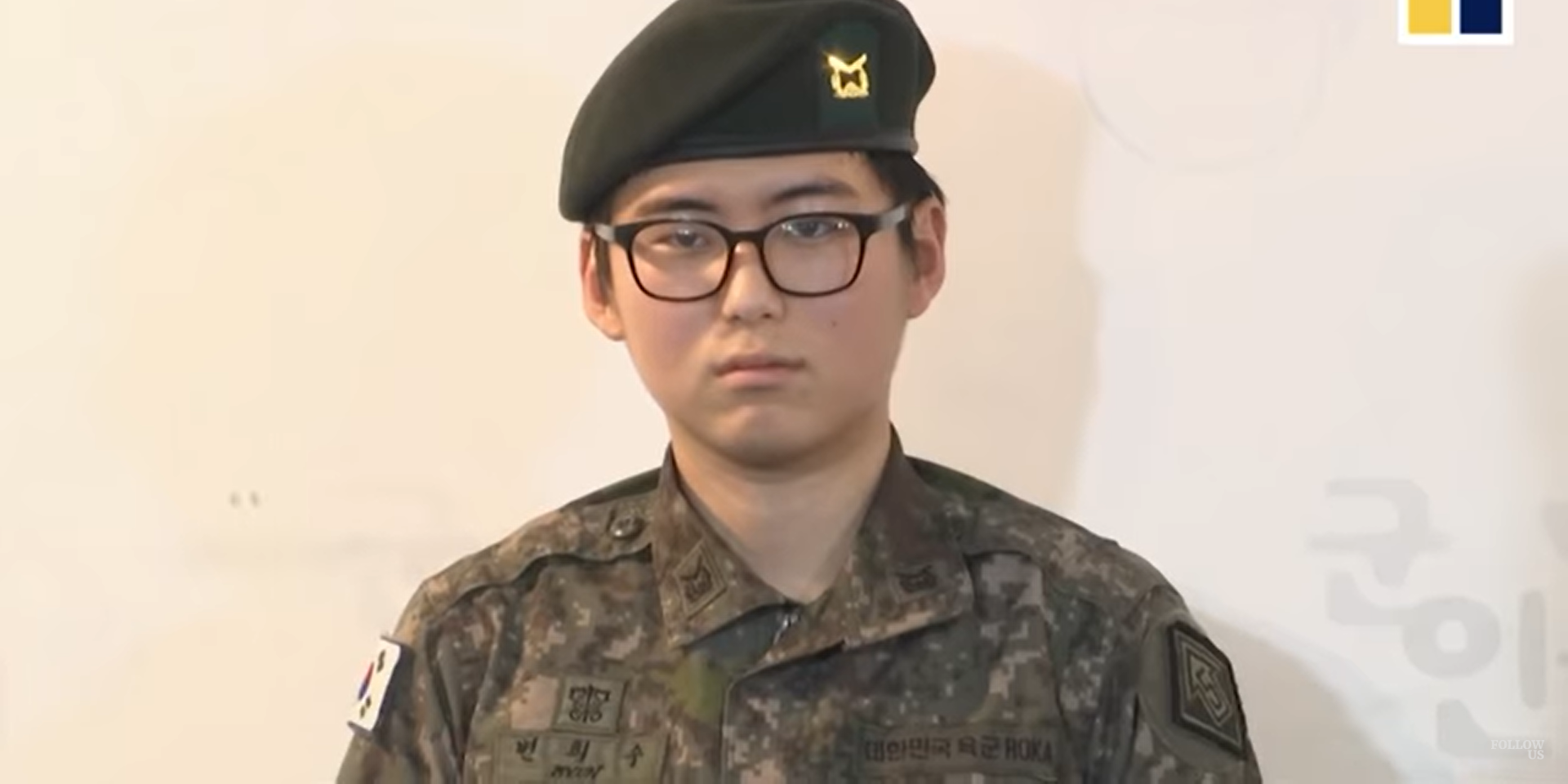
A year after she was forcefully removed from South Korea’s military, a transgender soldier was found dead in her home.
According to South Korean news source Yonhap, 23-year-old Byun Hee-Soo was found dead in her home within Cheongju, South Korea. A mental health counselor who was working with Byun called the police after losing contact with the former staff sergeant on Sunday, February 28. It was later discovered that a local mental health care clinic had been working with Byun after she attempted suicide three months ago.
When firefighters showed up at Byun Hee-Soo’s home, they found her around 5:49 pm. No suicide note was found. Police are currently investigating the death to rule out any foul play.
Byun Hee-Soo first made news in late January of last year. The soldier had come out as transgender and was being dismissed by the South Korean military over it and her gender reassignment surgery. She then sued the military for firing her from her childhood dream.
“I want to show that I can protect the nation as an excellent soldier regardless of my gender identity,” she told reporters in 2020 after her discharge. “Please allow me the opportunity.”
The country of South Korea has no law against transgender service members. That said, it does have a law against same-sex relations within the military. Any men found having sex with other male soldiers is at risk of facing two years in prison. This is a complicated law for queer men, as the country still had a mandatory two-year draft for all male citizens.
Despite the lack of any law against transgender service members, Byun Hee-Soo was given only a week’s notice before being ordered to leave. To defend the order, military higher-ups quoted a military code stating that soldiers cannot remove or damage their genitals or be physically/mentally imbalanced. In response, Byun, who was the first South Korean soldier to undergo gender reassignment surgery, argued that she underwent the surgery to help fight her depression. She also said that her unit supported her transition.
Since the military’s decision, several human rights groups have argued in Byun Hee-Soo’s defense. The Center for Military Human Rights Korea filed a petition stating that Byun’s discharge was an act of discrimination. Then National Human Rights Commission of Korea (NHRCK) said in December that the military’s decision to remove Byun had no legal grounds.
Again, Byun Hee-Soo died at the age of 23.
Source: Yonhap,
